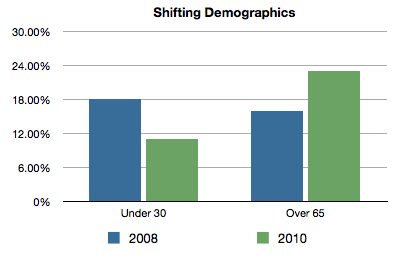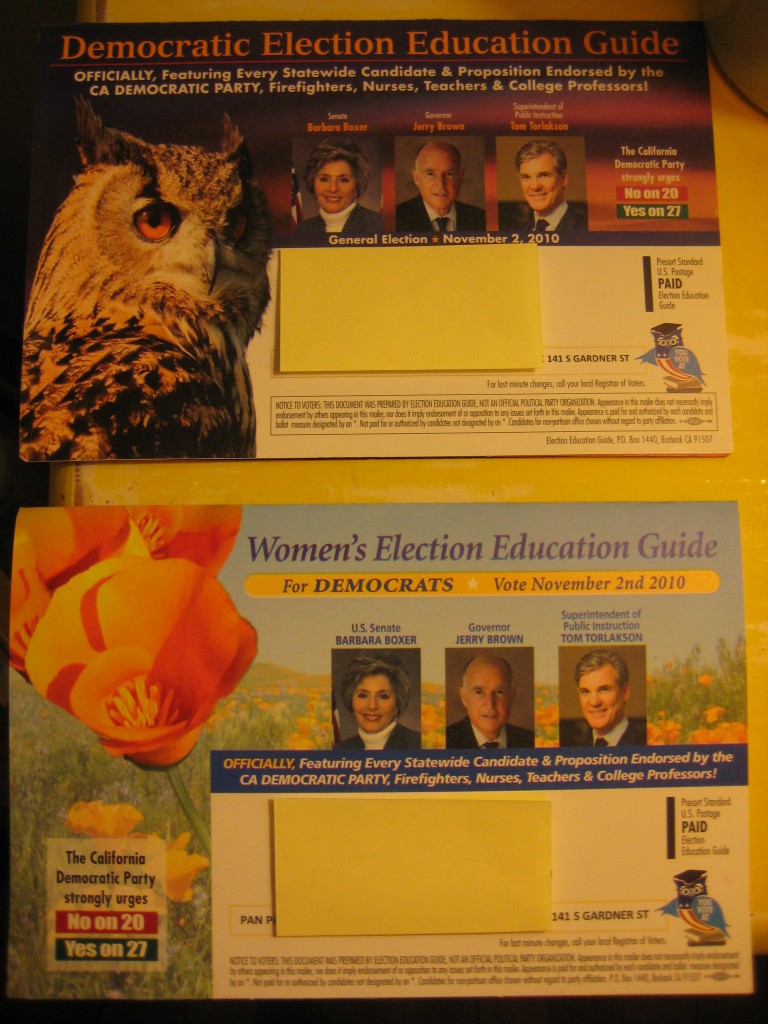In the midterm election last week Republicans took the House and won eight seats in the Senate. Their win, however, as Matthew Yglesias puts it, doesn’t simply reflect the “national mood.” Instead, it was partly a reflection of a shift in the demographics of the voters who turned out. Young voted still lean Democratic, and many more of them stayed home last Tuesday than two years ago.
See also our post on historic trends in voter turnout.
Via Jose Marichal at Thick Culture.
Lisa Wade, PhD is an Associate Professor at Tulane University. She is the author of American Hookup, a book about college sexual culture; a textbook about gender; and a forthcoming introductory text: Terrible Magnificent Sociology. You can follow her on Twitter and Instagram.







